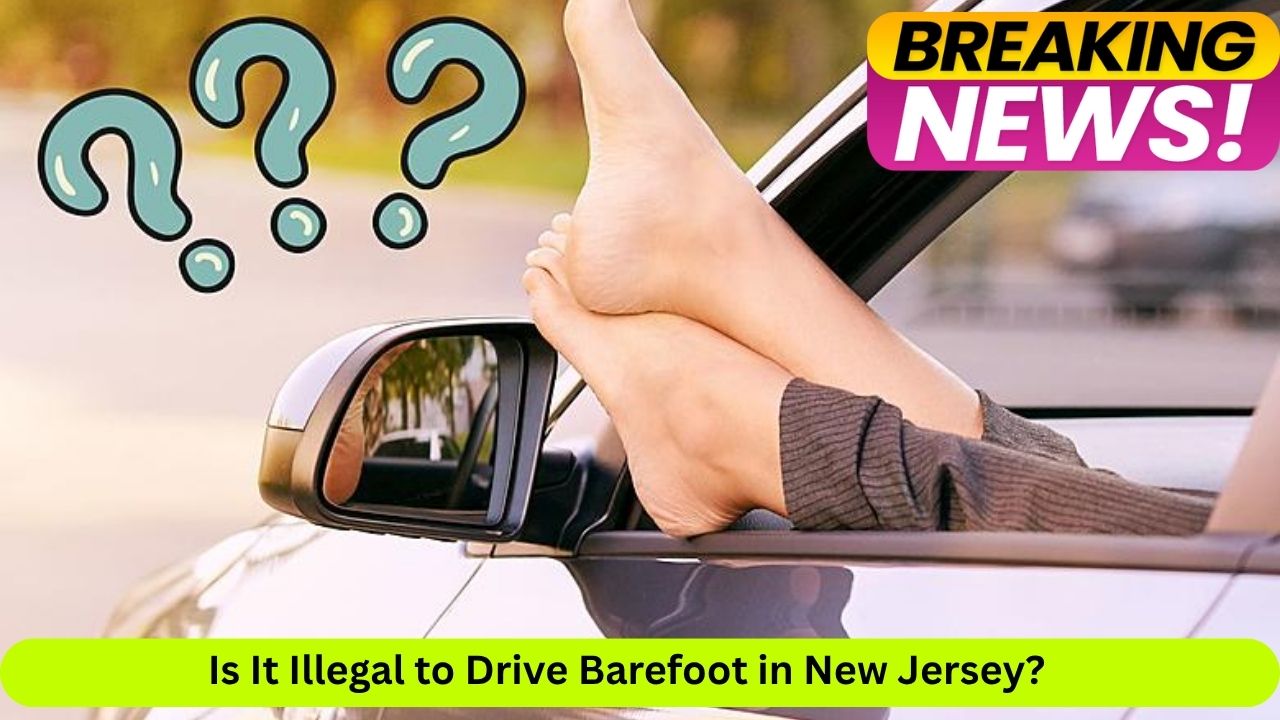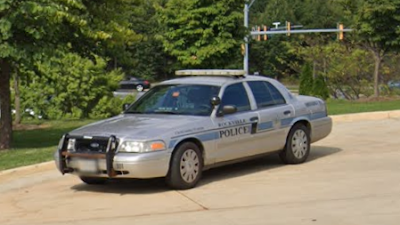Imagine cruising down the Garden State Parkway after a beach day in Cape May or a jog in Liberty State Park, only to realize you left your sneakers behind. You glance down and hesitate—can you drive barefoot in New Jersey? It’s a question many New Jerseyans wonder about. This article dives deep into what state law actually says, compares it to other rules across the U.S., explores safety considerations from Jersey City to Atlantic City, and offers practical advice—complete with stats, city insights, and real‑world scenarios.
Key Takeaways at a Glance
-
No New Jersey statute bans driving without shoes—barefoot driving is legal statewide.
-
Some local police departments and driving instructors may discourage it, citing safety concerns.
-
In the event of an accident, driving barefoot won’t automatically mean a citation—but it could factor into recklessness claims.
-
Compared to risky footwear like flip‑flops or high heels, barefoot driving may sometimes be safer—but caution is still advised.
-
Ultimately, you’re responsible for ensuring you remain in full control of your vehicle, shoes or not.
What New Jersey Law Actually Says
There is no section of the New Jersey Motor Vehicle Code or administrative regulation that states it is illegal to operate a motor vehicle without footwear. Nor does any municipal code in cities like Newark, Jersey City, or Atlantic City specify a prohibition. Courts in New Jersey have not upheld any rulings indicating that barefoot driving itself constitutes a traffic violation. Even in traffic court proceedings, what matters is whether the driver exercised due care—not what they had on their feet.
Why So Many Believe It’s Illegal
The belief that barefoot driving is illegal in New Jersey is an enduring myth—one reminiscent of other road‑safety legends like “you can’t turn on your dome light at night” or “drive‑through lanes are illegal without shoes.” This misconception has spread through word‑of‑mouth, coach‑taught advice, and casual “warnings” from law enforcement. In reality, it’s confusion mixed with caution—but not law.
When Barefoot Driving Could Still Land You in Trouble
Although it’s not illegal to drive barefoot, dangerous or reckless driving laws still apply. Here are some scenarios where barefoot driving could heighten legal exposure:
-
If a collision occurs and your driving is impaired, the lack of footwear could be cited by the officer as a contributing factor. For example, slipping off a slick metal or worn pedal while accelerating could support a charge of careless or reckless operation.
-
Local ordinances: While statewide law allows barefoot driving, local municipalities might have stricter vehicle equipment codes or safe‑operation regulations. Always double‑check when traveling through towns like Princeton Borough or Hoboken.
-
Insurance implications: If an insurance claim is filed and your insurer believes barefoot driving contributed to the crash, it could affect liability or compensation—even if no ticket is issued.
Body Mechanics: Is Driving Barefoot Safer Than Wearing Shoes?
-
Grip & control issues: Bare feet may not apply as much steady pressure on pedals as proper footwear. A sneaker with a stiff sole offers more consistent force—a potential advantage in emergency braking situations.
-
Slippage risk: Bare skin against rubberized pedals often provides decent traction, but on metal or dusty surfaces it may be slick—especially if feet are wet.
-
Avoiding hazardous footwear: Flip‑flops, high heels, and loose‑soled sandals can slip off, fold, or get wedged under pedals—posing a greater risk than barefoot driving in some cases.
-
Sensory awareness: Bare feet allow you to feel pedal position and angle naturally; conversely, footwear can diminish this feedback.
In short, barefoot driving is a trade‑off: you may avoid the hazards of loose footwear, but you lose some force and protection.
Comparisons: New Jersey Vs. Other States
-
New Jersey stands alongside all 50 states in not explicitly prohibiting barefoot driving.
-
Some states issue advisories against it, and others allow discretion for officers to cite it if a crash occurs.
-
For instance, states like Ohio or California explicitly permit barefoot driving but caution it might be unsafe or a contributing factor in accidents.
-
Alabama is an exception—but only for motorcycle riders, not car drivers.
Jersey’s position aligns with the national norm: it’s legal by default unless local rules say otherwise.
Practical Tips for Safe Barefoot Driving in NJ
-
Check your vehicle’s pedal surface: If you have metal pedals or aftermarket racing pedals in your Honda in Newark or Passaic, consider a quick shoe before driving.
-
Dry your feet: After beach trips in Wildwood or pool days in Lakewood, ensure your soles aren’t wet and slick.
-
Avoid loose footwear: If you’re choosing between flip‑flops and barefoot, barefoot might be safer.
-
Have emergency footwear handy: A pair of sandals by the seat helps if you need grip or cover injuries.
-
Be crash‑ready: In accidents, your footwear might be scrutinized. Having a reasonable explanation helps—e.g., “I had just finished yoga in Morristown.”
Real‑World Examples
-
Summer rides from Cape May to Atlantic City: Beachgoers often ditch shoes near the boardwalk. Many drive barefoot into town—without incident or law enforcement issues.
-
Day‑to‑day errands in Hoboken or Montclair: Casual barefoot drivers are seen without ticketing—though some patrol officers discourage it during community events.
-
Rural routes near Sussex County: Locals sometimes walk barefoot on farm roads and drive straight home—again, no enforcement evidence exists.
Across New Jersey, there isn’t a single recorded instance of barefoot driving being ticketed as barefoot driving. Citations tend to arise only if the footwear—or lack thereof—directly caused or worsened the incident.
Addressing Common Questions from NJ Drivers
-
“Will a cop pull me over for being barefoot?”
Not unless the barefoot condition is causing unsafe handling. No, you won’t get a ticket just for bare feet. -
“Could barefoot driving void my insurance if I crash?”
It could factor into a determination of negligence. There’s no automatic rule, but insurers might use it to argue reduced control or recklessness. -
“Is driving barefoot better than wearing flip‑flops?”
In side‑by‑side comparison, barefoot usually poses fewer entanglement risks. But a firm, flat‑soled shoe still offers the best overall safety.
Final Thoughts: Common Sense Over Legality
Legally, you’re fine. But safety is another matter. What really matters in New Jersey is whether you can maintain complete control of your vehicle. A driver in Ridgewood or Bayonne who always feels firmly foot‑to‑pedal is less likely to involve in incidents. The key is awareness—know your car, your feet, and the conditions.
Let common sense guide you. If barefoot works for your vehicle and driving style, that’s fine. If you ever feel unstable, uncomfortable, or apprehensive, a simple pair of shoes in the seat beside you is an easy fix.
Closing Remarks
So is it illegal to drive barefoot in New Jersey? The short answer: absolutely not. There’s no law, state or local, that bans it simply because you don’t have shoes on. But legality doesn’t always mean safe, and that’s the real message here. Whether you’re navigating rush‑hour on the Pulaski Skyway or a moonlight drive along the Jersey Shore, safety and control are your top priorities—footwear or none.
Drive safe, New Jerseyans. Whether you’re headed to Hoboken, Camden, or Newark, just make sure those bare soles—or trusty sneakers—help you stay in full command of the road.
















Leave a Reply